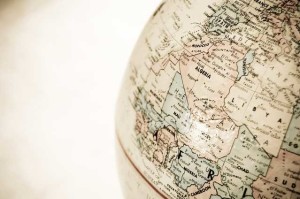
WASHINGTON — An annual government report outlining the state of affairs for religious freedom across the globe has found “worsening” conditions worldwide, and urges the U.S. Department of State to designate 16 nations as Countries of Particular Concern (CPC).
“Overall, the Commission has concluded that the state of affairs for international religious freedom is worsening in both the depth and breadth of violations,” said U.S. Commission on International Religious Freedom (USCIRF) Chairman Thomas Reese in a statement.
“The blatant assaults have become so frightening—attempted genocide, the slaughter of innocents, and wholesale destruction of places of worship—that less egregious abuses go unnoticed or at least unappreciated. Many observers have become numb to violations of the right to freedom of thought, conscience, and religion,” the Commission’s report also outlined.
USCIRF has determined that six additional countries meet the criteria for the CPC list, which for years has already included Burma, China, Eritrea, Iran, North Korea, Saudi Arabia, Sudan, Tajikistan, Turkmenistan, and Uzbekistan. This year, it was requested that the Central African Republic, Nigeria, Pakistan, Russia, Syria and Vietnam also be listed as countries of concern.
In Nigeria, “Christian leaders in the northern states continued to report to USCIRF that state governments discriminate against Christians by denying applications to build or repair places of worship, access to education, representation in government bodies, and employment. They also reported that Christian girls are abducted by Muslim men to be brides,” the report explained.
It noted that the Islamic terror group Boko Haram often forces Christians to convert or die, and that two Nigerian women were killed by angry mobs last year after being accused of blasphemy.
The Commission outlined that similarly, it is illegal in Pakistan to defile the Koran or to blaspheme the Islamic prophet Muhammad. Those who violate the law suffer devastating consequences.
“In January 2017, an antiterrorism court acquitted more than 100 suspects accused of participating in the January 2013 attack on Joseph Colony, a predominantly Christian neighborhood in Lahore, Punjab Province. The attack was sparked when a Christian resident was accused of blasphemy. A mob of approximately 3,000 individuals destroyed more than 150 Christian homes, Christian businesses, and two churches, and forced hundreds of Christian families to flee,” it stated, lamenting that none have yet been charged for the crime.
And while officials in Vietnam have taken steps to improve religious liberty in the nation, “USCIRF received a report that in one incident, authorities arrested at least seven Montagnard Christians from the Central Highlands after police reportedly instructed the individuals to stop believing in God.”
USCIRF believes that Russia should additionally be designated a CPC as its Supreme Court banned all Jehovah’s Witnesses activities in the country last month in its crackdown on extremism. Additionally, in July, under the guise of combatting terrorism, Russian officials outlawed “missionary activities,” such as public preaching, one-on-one witnessing and the distribution of tracts.
“Over time, the Russian government has come to treat the Moscow Patriarchate of the Russian Orthodox Church (MPROC) as a de facto state church, strongly favoring it in various areas of state sponsorship, including subsidies, the education system, and military chaplaincies,” its report outlined. “This favoritism has fostered a climate of hostility toward other religions.”
It noted that 53 individuals or groups have been prosecuted for violating the missionary ban since it went into effect, 43 of whom were non-Orthodox.
The Commission requests that both Congress and the Trump administration continually speak up about religious freedom abuses around the world, both in public and in private meetings.
“You cannot have religious freedom without the freedom of worship, the freedom of association, the freedom of expression and opinion, the freedom of assembly, protection from arbitrary arrest and detention, [and] protection from interference in home and family. And you cannot have religious freedom without equal protection under the law. And on it goes,” the report states.
“Religious freedom, at its core, is the right of individuals and communities to manifest their religion or belief, and is a basic human right. Protecting that right falls to each and every one of us, requiring people from all countries, political views, and faiths to come together to fight religious persecution and work to protect religious freedom for all.”
Become a Christian News Network Supporter...


